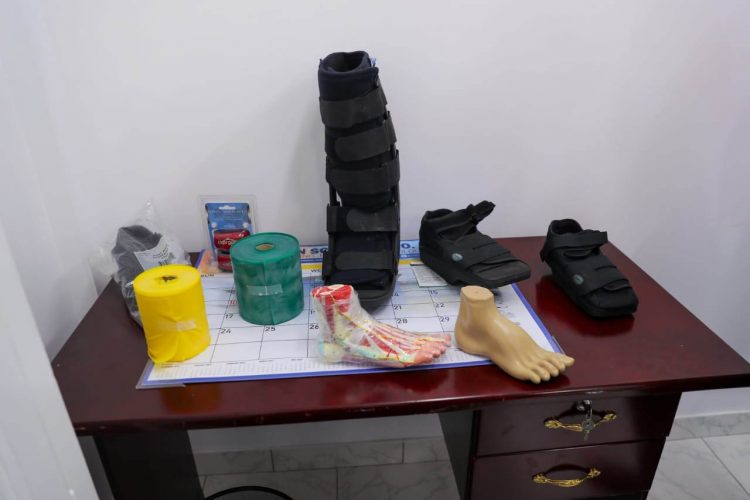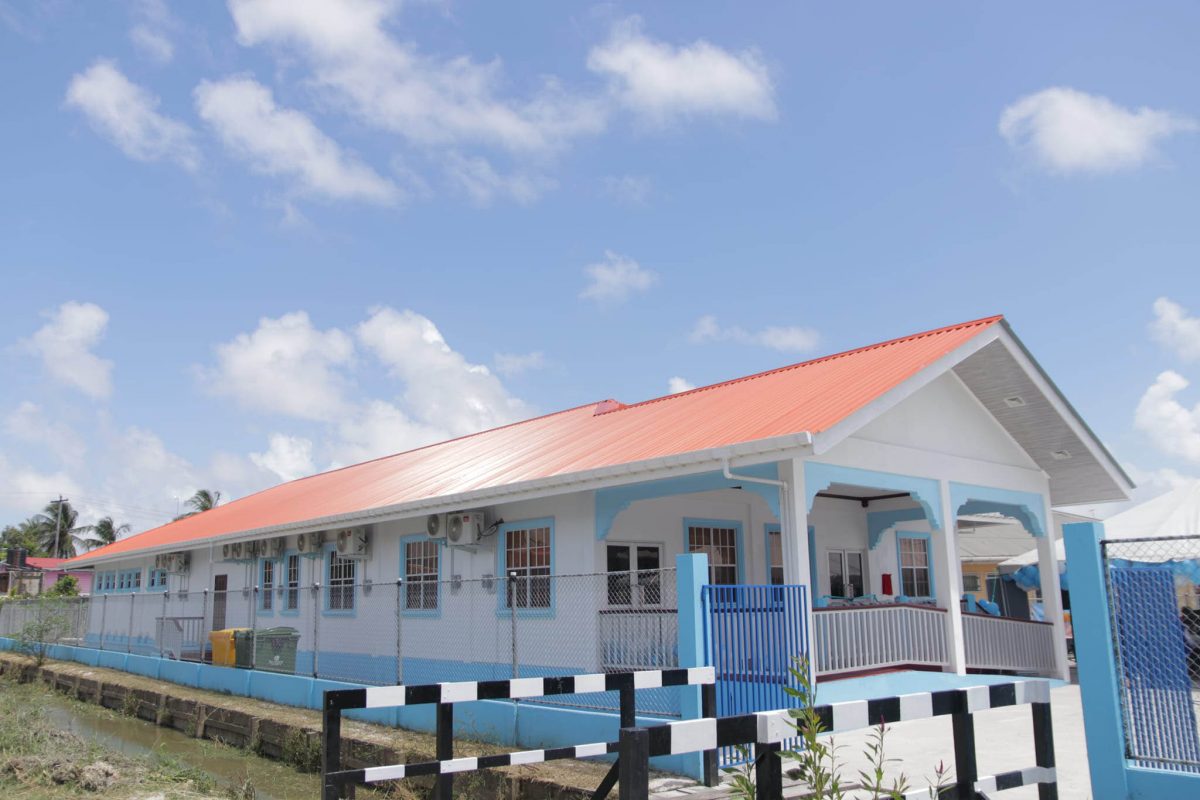The Ministry of Health yesterday commissioned its first Diabetes Comprehensive Care Centre at Lusignan, East Coast Demerara.
The centre aims to provide all of the specialized care needed to properly manage diabetes.
According to the ministry, approximately $65 million was spent in building the centre. It is also outfitted with equipment.

Minister of Health Dr Frank Anthony yesterday said that many persons are not aware that they have diabetes and when they experience complications and go to the hospital, the doctors are basically treating them for the complication and to help manage their blood sugar. He said that the opening of the Diabetes Comprehensive Care Centre moves away from the traditional way of treating persons with diabetes and helps them with services such as eye and cardiovascular screening, diabetic wound care, radiology services, dietary counselling, mental health counselling, physiotherapy, and rehabilitation services.
“We are very pleased to open this facility here in Lusignan. We have been working on this project for quite a while and the rationale being … that we recognize the prevalence of diabetes in Guyana is a rather relatively high one. One of the estimates that was done by the international diabetic federation some time ago… estimated that perhaps we have about 66,000 cases of diabetes. Dr. (Leslie) Ramsammy mentioned probably about 50,000 persons or so in Guyana are probably diabetic. So it’s a large number and what is sad is that a lot of persons do not even know that they have diabetes because they are not coming to get tested. They might have the signs and symptoms of diabetes but it goes unrecognized, and it is only until they develop severe complications that they will come to the health centre, or the hospital with these complications and then you figure out that they actually have diabetes. But at that time, basically what we are doing, is to treat them for the complications and to help them to manage their blood sugar. But it doesn’t have to be that way because what we need to do, is to set up in our primary health care system, a better way of diagnosing people early and even getting people into the habit of coming to the health centre for preventative checkups.”
He continued, “If we look at the reasons why people died, you’ll see that more people died from chronic non-communicable diseases rather than infectious diseases. If we look at the reasons why people get sick, you’ll see that more people are getting sick because of chronic non-communicable diseases rather than infectious diseases. We haven’t solved the problem with infectious diseases, they are still going to be there, but because of the programmes that we put in place, we are seeing a relative reduction, but what we are seeing is an increase in people having chronic non-communicable diseases and its complications, and therefore, we have to really plan and make sure that we can reduce this type of diseases for our population.”
The minister iterated that if persons started doing preventative checkups then they will be able to identify things very early and be able to prevent or delay the onset of a lot of chronic diseases.
He noted that the new centre is going to offer a “one stop shop” for anything dealing with diabetes. “When you come in you’ll be able to see the doctor, and if you need counseling for nutrition, because we have to watch what we eat, a lot of people don’t know how to eat properly, we will teach people how to prepare meals, what to eat and so forth, so that will be one of the service offered at the regional hospital.”
Other services offered will be eye examinations, a physiotherapy department, and laboratory. “The facility will provide services to check person’s eyes for glaucoma, there’s will be a physiotherapy department that will be able to work with patient, blood and other specimens will be taken in the laboratory and it can be processed right here, if it needs to be sent to the Georgetown hospital, the patient don’t have to go anywhere, they just come here and they will sort it out.”
The health minister noted that the regional diabetes hospital will be assessed for its effectiveness, if it’s reducing the complications for diabetes or if the hospital is delaying in treating the disease. “If we see that this is working well [then] this model is ready to be replicated in other parts of our country. So we will do it in all the other regions, once we see that this is working.”
He also added that the Ministry of Health had partnered with PAHO to benefit from their knowledge and work with their guidelines in order to bring the best care to Guyana in their first diabetes comprehensive centre. “We have had a partnership with PAHO/WHO and they had got in a specialist from Haiti where this was done, we had the benefit from their knowledge, we have been able to look at guidelines that they have been using, we have those guidelines in some of which we have adopted. Brazil have a similar centre like this, more sophisticated than this one, and some point in the future, we are making arrangement for this team that is based here, to go and see what is being done in Brazil. So that we can learn from them and also, we are going to get them to collaborate with us, to provide technical advice as well. So we are looking for these internal partnerships, and learning from what people are able to accomplish to make sure we can bring the best care to our country.”
Anthony further added that they have been working with Mount Sinai Health System out of New York, USA, to provide the new model of care that the Ministry of health will be pivoting towards. “One of the major things we are doing with Mount Sinai is looking at diabetes care of the patients. About two weeks ago we have completed the National level Guidelines for diabetes care and we are in the process of reviewing those guidelines right now and once that is completed, this will be the new model of care that we will pivoting towards. This will be adopted across the country and some of the changes we are making.”
He explained that the Ministry is working on accomplishing having health care in all regions. “… because you might see the hospital in Georgetown, have more equipment, more staff than let say a hospital in Linden or New Amsterdam. But we are working to fix that, one of the things the president did is make sure that we in the health sector, we have enough resources to make sure we have these investments in all the regions in Guyana.”





